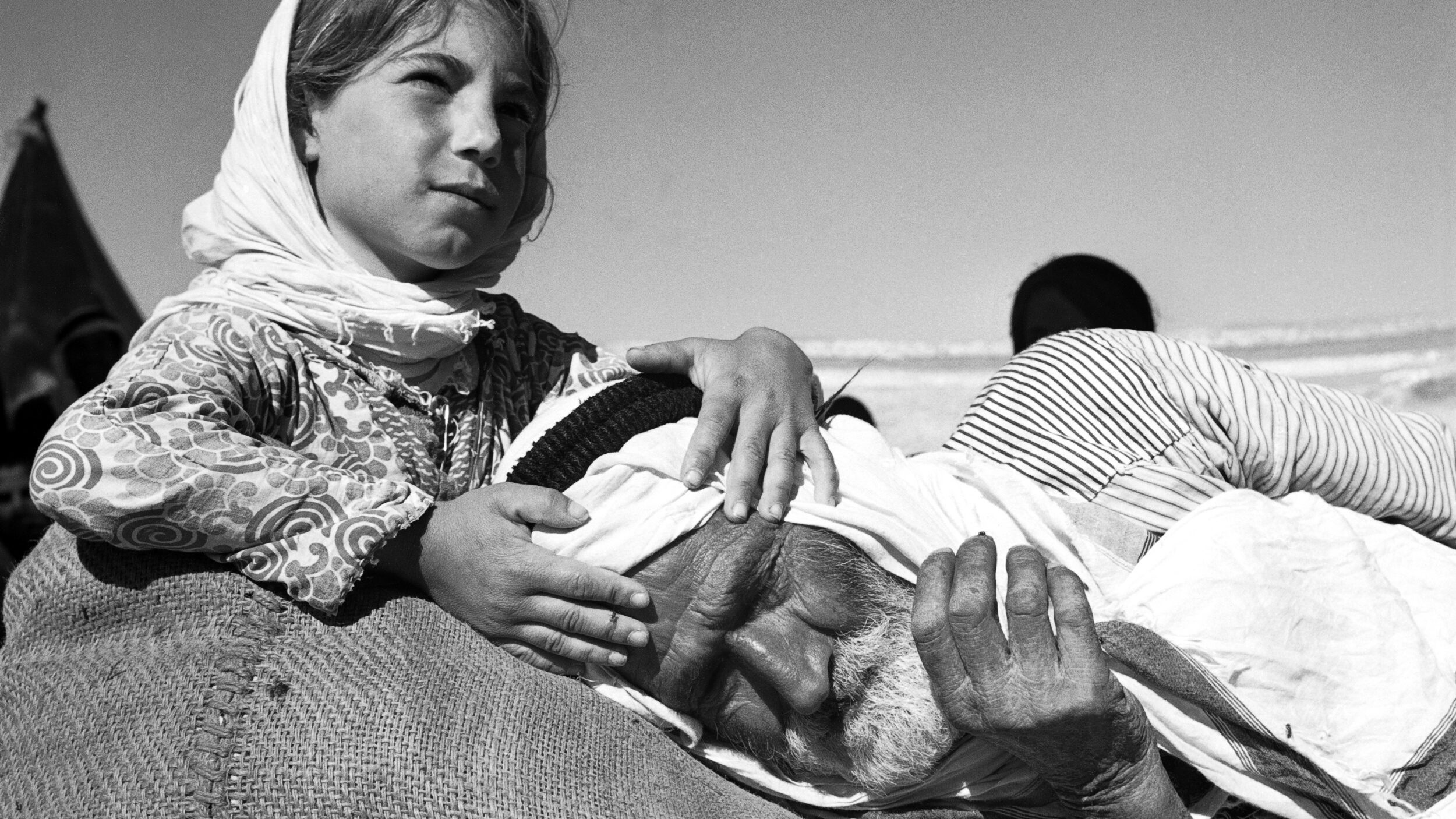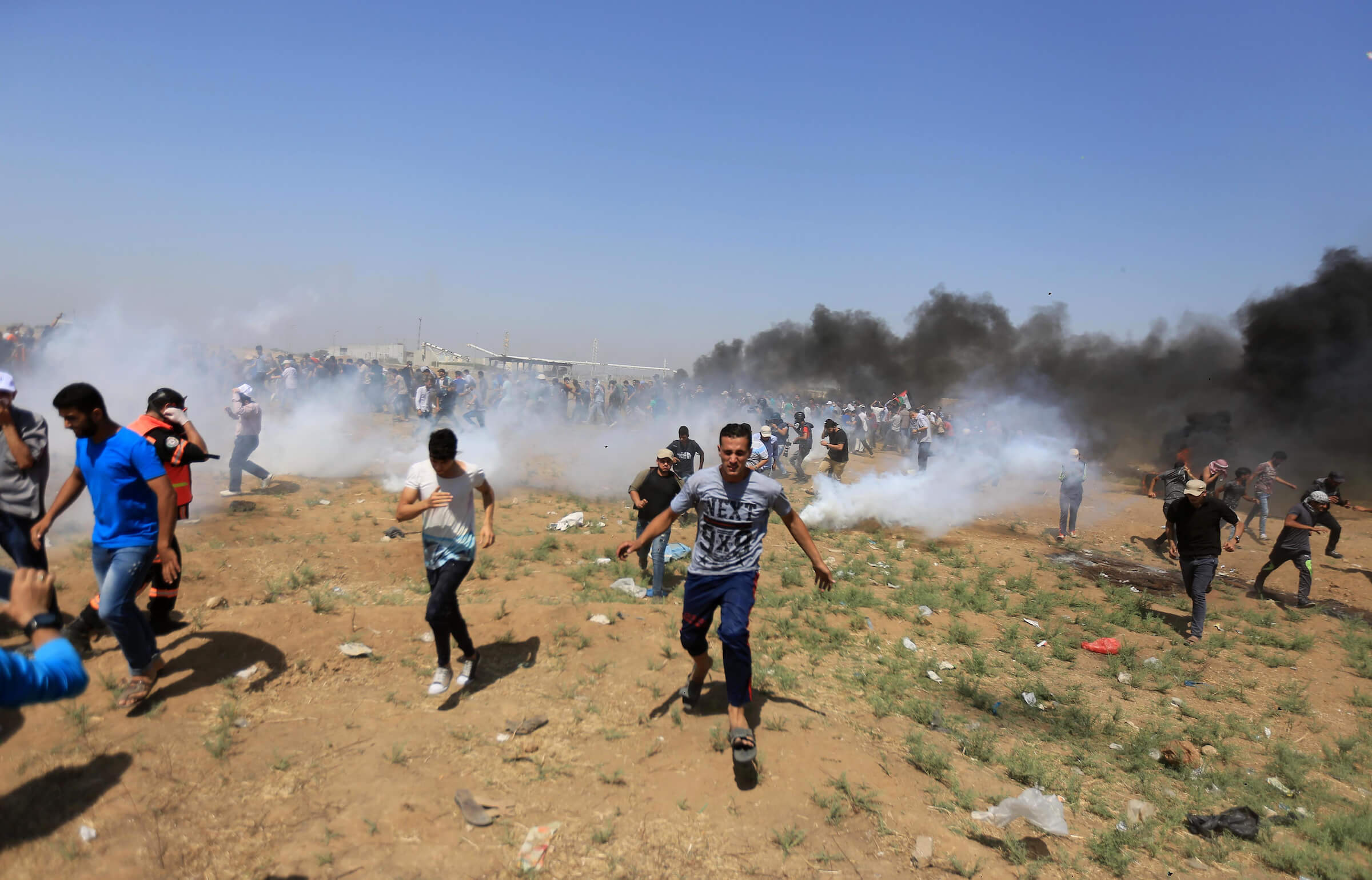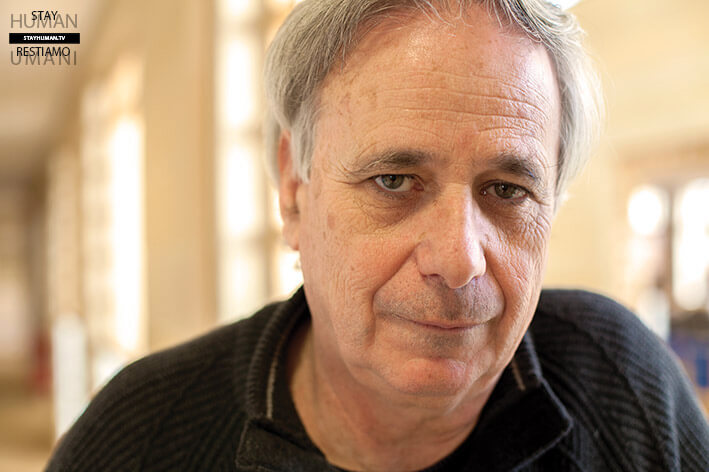Marcelo Svirsky says Zionism is not a political ideology or movement in the narrow sense but a way of life that permeates all spheres of Jewish-Israeli culture and society. It can therefore be overcome only by means of a deep cultural transformation.
Roman Levin, 19, is the latest Israeli soldier to be imprisoned for refusing to continue serving in the military after on moral objections to the occupation: “I heard soldiers talk about how they raid villages at night to detain suspects. It grieves me to see how the Jews, in the past one of the most oppressed peoples, now occupy another people.”
“Even a thousand films on the Nakba would not suffice,” says Ahlam Muhtaseb, co-director with Andy Trimlett of a new film, “1948: Creation & Catastrophe,” which is based in part on interviews with survivors, many of them of advanced years. The film has been subject to protests by Israel supporters, and a screening in West Hollywood was scratched under pressure in December, now rescheduled for March. Stephen Shenfield interviews the co-directors.
The Gaza Strip has become a free fire zone where any Palestinian can be shot and killed with impunity. Israeli soldiers are allowed to target “main inciters” who “inflame” other demonstrators; and that can mean anyone at all.
Stephen Shenfield writes Palestinian refugee from Syria and filmmaker Hala Gabriel is nearly finished with her documentary “On the Road to Tantura.” But she needs one last fundraising push: “The basic work on the documentary has now been done. Hala Gabriel and her producer Talal Jabari have a solid 70-minute “rough cut” of the film. However, there remains significant work to be done in order to complete the project in the near future at the same high standard of professionalism as they have maintained since the start of the project. They aim to release the film by the 70th anniversary of the Nakba and in time for the 2018 film festival circuit.
In August 2015 Hala Gabriel talked to Mondoweiss about Road to Tantura, the documentary she is making about the massacre committed by Zionist forces in her ancestral village during the Nakba. As part of the making the film Hala and her crew spent most of the month of March 2016 among refugees from Syria in Lebanon, Greece, and Germany. Their main purpose was to locate and interview Tantura exiles for the film, and Stephen Shenfield interviews Gabriel about what she learned during her time interviewing refugees leaving the Middle East.
The growth of ethnic, racial, and religious hatred in Israel, often taking violent forms, has been a striking development of recent years. However, the contrast with earlier periods of the state’s existence should not be exaggerated. Certain features – for instance, mass processions changing “Death to Arabs!” – may be new, but prejudice, intolerance, and xenophobia were already widespread half a century ago and their violent expression was not unknown. This is one of the conclusions to be drawn from revisiting the work of a penetrating critic of Israeli society who, regrettably, is now almost forgotten – the social psychologist Georges R. Tamarin.
Tantura was a beautiful Palestinian fishing village 15 miles south of Haifa. In the early hours of May 23, 1948 it was attacked and occupied by the Haganah. Over 200 villagers, mostly unarmed young men, were massacred; others were taken prisoner and put to forced labor. The site of the village is now a beach resort. The mass grave in which the victims of the massacre are buried is covered by a parking lot. Stephen Sheinfeld interviews Hala Gabriel, a Palestinian-American filmmaker, about her new film Road to Tantura. Gabriel was born as a refugee to parents who had fled from Tantura (the house left partly standing had belonged to her family). In 2010, Hala managed to enter Israel and visit the site of her ancestral village. She also met relatives who had taken refuge in the nearby village of Fureidis, which had escaped destruction, and interviewed three of the men who had participated in the attack on Tantura.
Ilan Pappé’s latest book tells the story of the rise and fall of the intellectual and cultural movement in Israel that came to be known as “post-Zionism” – a story in which he himself played one of the most prominent roles.








